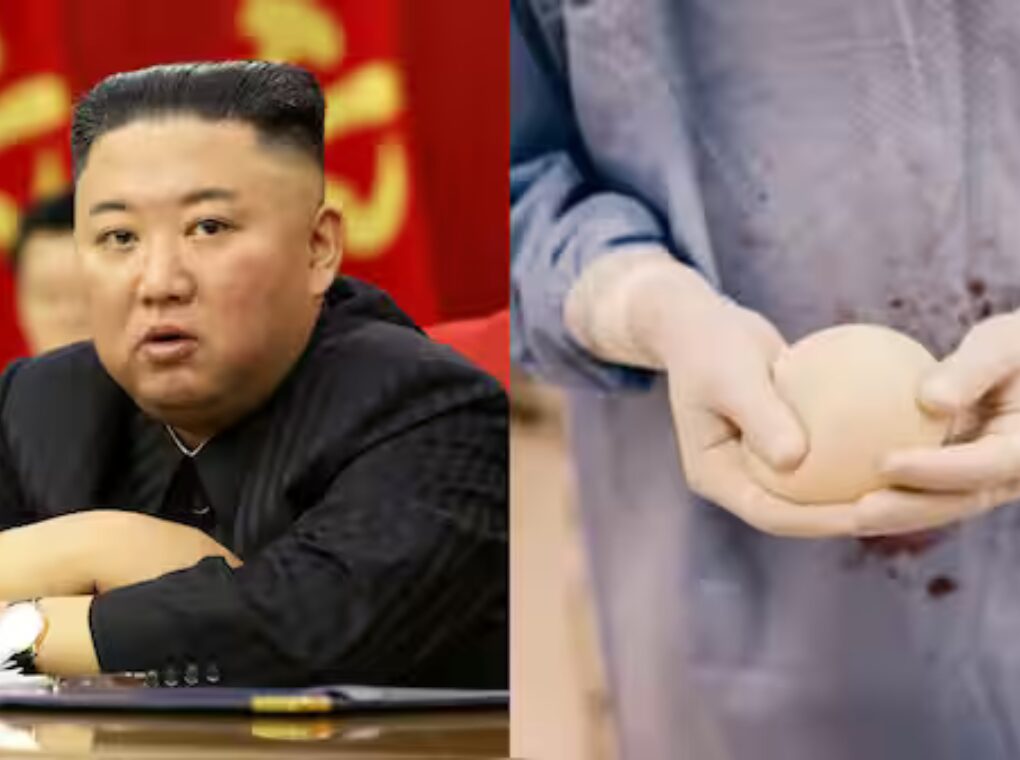North Korea has announced a new campaign against cosmetic surgeries, with a particular focus on breast augmentation procedures. Authorities have described such practices as “anti-socialist” and “bourgeois,” framing them as a form of capitalist vanity that undermines the values of the state.
This latest measure is part of a broader effort by the country’s leadership to regulate personal appearance and restrict what it considers foreign or capitalist influences on society.
Public Trial in Sariwon
The crackdown became widely known after a public trial in Sariwon, a city located about 75 kilometers from Pyongyang. Reports from Daily NK, a Seoul-based outlet that monitors developments in North Korea, stated that a doctor and two women in their twenties were tried for conducting and undergoing breast implant procedures.
The doctor, who had left medical school before graduating, was allegedly performing surgeries at his home using silicone smuggled in from China. At the trial, authorities presented confiscated medical instruments, cash, and silicone as evidence.
According to eyewitness accounts, the doctor stood with his head bowed, while the women admitted they had chosen surgery to enhance their appearance. Prosecutors accused them of being influenced by “bourgeois customs,” and the judge declared that their actions weakened loyalty to collective socialist values.
The case attracted significant local attention, not only for the charges themselves but also for the reported investigative methods. Local sources indicated that security officials carried out physical examinations on women suspected of having undergone cosmetic surgery, which reportedly unsettled many in attendance.
Nationwide Crackdown
Following the trial, North Korea’s Ministry of Public Safety issued an emergency order to strengthen enforcement against cosmetic surgery. Plain-clothed “strike teams” were reportedly deployed in Pyongyang and other major cities to identify possible violations.
Neighborhood watch groups, a common feature of North Korea’s local surveillance system, were instructed to report individuals who appeared to have undergone breast augmentation or other popular cosmetic procedures, such as double-eyelid surgery. Those flagged could be referred to hospitals for further examinations.
Punishments for both practitioners and patients include criminal charges, imprisonment, or placement in labor training camps. The development has reportedly created an atmosphere of anxiety among young women in cities such as Sariwon, who fear being subjected to invasive checks.
A Broader Pattern of Restrictions
The ban on breast implants is part of a long-standing pattern of restrictions on personal expression in North Korea. In recent years, the government has implemented rules covering language, food, clothing, and entertainment, all framed as efforts to shield society from “foreign influence.”
Language: Everyday terms like ice cream, hamburger, and karaoke have been replaced with lengthy state-approved alternatives.
Food: Hot dogs were outlawed earlier this year, with consumption or sale classified as treason. Reports also suggest that other popular foods, such as tteokbokki (spicy rice cakes), have been banned.
Fashion and Grooming: Jeans, short skirts, high heels, makeup, and branded clothing are prohibited. Hairstyles are restricted to state-approved styles with guidelines on acceptable lengths.
Media: A recent UN review highlighted that North Korea continues to punish access to foreign media, with reports of harsh sentences, including executions, for those caught watching South Korean dramas or foreign films.
Possible Motivations
Analysts suggest that the crackdown on cosmetic surgery reflects both ideological and political considerations. Cosmetic procedures are viewed by the authorities as a form of individualism and foreign-inspired consumer culture, which the regime sees as a challenge to its emphasis on collectivism and loyalty to the state.
At the same time, restricting personal appearance allows the leadership to reinforce its broader campaign of social control. By labeling cosmetic surgery as a symptom of capitalist corruption, the government portrays itself as the guardian of cultural and ideological purity.
North Korea’s campaign against breast implants is the latest example of its leadership’s efforts to regulate the private lives of citizens. The public trial in Sariwon, the reported use of physical examinations, and the deployment of surveillance teams demonstrate the extent to which the state seeks to exercise authority over personal choices.
While the international focus on North Korea often centers on its nuclear program and military posture, the crackdown on cosmetic surgeries highlights another dimension of control: the regulation of appearance, culture, and everyday life.
In this environment, decisions that are personal in most societies—such as hairstyle, clothing, or medical procedures—become political acts subject to state scrutiny.
